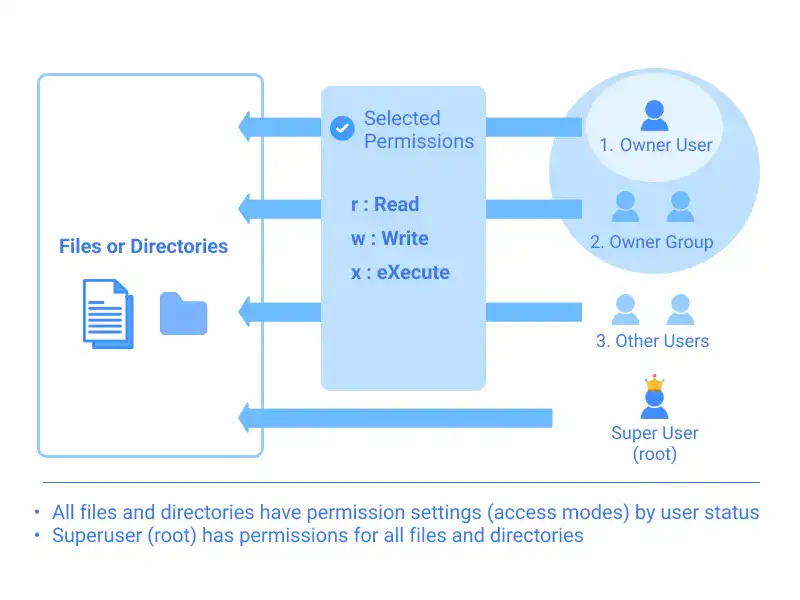TABLE OF CONTENTS
In the rapidly evolving landscape of technology, understanding Linux is more than a technical skill—it is a crucial asset that opens numerous opportunities across various sectors. Whether you are an aspiring software developer, a system administrator, or just a tech enthusiast, Linux knowledge can significantly boost your career prospects and technical prowess.
This blog explores the importance of Linux knowledge and how it can empower professionals and businesses alike.
Broadening Career Horizons
Linux is the engine behind a multitude of platforms and applications, spanning cloud solutions, enterprise servers, and Internet of Things (IoT) devices.
For professionals in IT, a deep understanding of Linux can open doors to a wide range of career opportunities. It's the foundation for roles in cybersecurity, data management, network administration, and software development. Linux is the preferred operating system for many servers that host websites, manage networks, and store data.
System Administration and Enhanced Security
Linux is celebrated for its robust security features, making it a preferred choice for enterprises that prioritize data protection and secure operations. Knowledge in Linux equips professionals with the skills to effectively manage server environments, implement stringent security protocols, and handle sensitive data securely.

This capability is especially valued in cybersecurity roles, where protecting against vulnerabilities and managing system integrity are most important.
Economic Benefits for Businesses
Beyond individual career benefits, Linux offers compelling economic advantages for businesses. As an open-source platform, Linux can drastically reduce software costs associated with licensing fees that are typical of other operating systems.
This cost-effectiveness makes Linux particularly attractive for startups and small businesses that require reliable technology solutions on a limited budget.
Innovation and Robust Community Support
The open-source nature of Linux fosters an environment of continuous innovation and community collaboration. Users and developers contribute to the system's development, ensuring that Linux is always evolving and improving.
Engaging with the Linux community can provide endless learning opportunities, professional development, and access to a network of support. Innovations driven by this community are often at the forefront of technology, pushing the boundaries of what open-source software can achieve.
Stability and Performance
Linux’s architecture provides unmatched stability and performance, especially in server environments and applications requiring high availability. It manages system resources efficiently, ensuring that services run smoothly without the frequent need for reboots or downtime. This reliability is crucial for businesses that depend on constant online presence and service availability.
Practical Learning with Our Linux Learning Course
To help enthusiasts and IT professionals alike harness the power of Linux, our free learning course offers a detailed exploration of Linux from basics to advanced implementations. The Linux learning course is structured to guide readers through every aspect of Linux operation and management. Here's a glimpse of what we cover:
Chapter Insights
- Chapter 1: Linux Basics: – Introduces the fundamental aspects of the Linux operating system, including various distributions, the importance of the kernel, and the essentials of file and directory management.
- Chapter 2: Linux Key Commands: – Covers critical Linux commands necessary for managing the system efficiently. This chapter is particularly useful for those setting up their Linux environment or managing files and directories.
- Chapter 3 to 8: Delve into more complex topics such as the Vim editor, user and group permissions, process management, and advanced network configurations including SSH and security protocols.
Real-World Applications
Understanding Linux goes beyond just navigating the command line; it involves leveraging this knowledge to tackle real-world challenges effectively. Linux is instrumental in numerous everyday applications, ranging from simple to highly complex systems.
For example, consider a typical online retail business that requires a reliable and secure e-commerce platform. By setting up a LAMP (Linux, Apache, MySQL, PHP) stack, the business can efficiently host and manage its e-commerce website. This configuration uses Linux as the operating system, Apache as the web server, MySQL for the database, and PHP for scripting. This setup ensures that the website can handle substantial traffic and data transactions securely and efficiently.
Another practical application involves the use of Linux in managing cloud-based services. For instance, a company could use Linux commands to automate the deployment of applications across various virtual machines in the cloud. This could include using scripts to automate the scaling of applications based on the load or demand, thereby optimizing resources and reducing costs.
Moreover, in a cybersecurity context, Linux's robust security tools can be employed to fortify network defenses. A network administrator might use Linux-based tools like iptables, fail2ban, or SELinux to configure firewall policies, scan for vulnerabilities, and enforce security protocols that prevent unauthorized access and attacks.
Conclusion
The importance of Linux knowledge in today’s technological landscape cannot be overstated. From enhancing career prospects and reducing operational costs to facilitating innovation and ensuring system stability, Linux skills are invaluable. Whether you're starting your tech journey or looking to enhance your IT skills, mastering Linux can significantly impact your professional capabilities and opportunities.
Ready to embark on your Linux learning journey? Dive into our comprehensive Linux learning course for detailed guides and practical insights, designed to transform beginners into skilled users capable of navigating and managing Linux environments effectively. Start your journey today and unlock the potential of Linux in your career and business.

